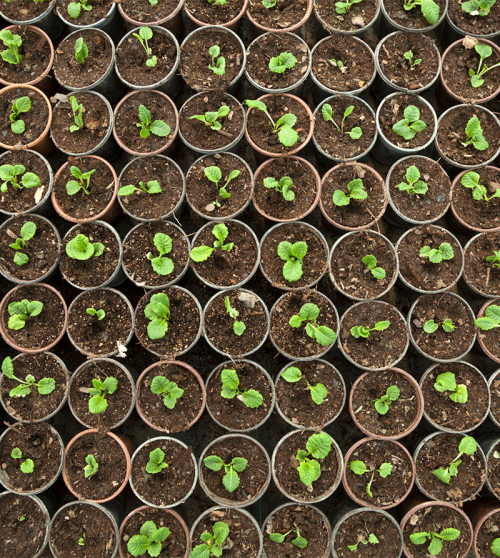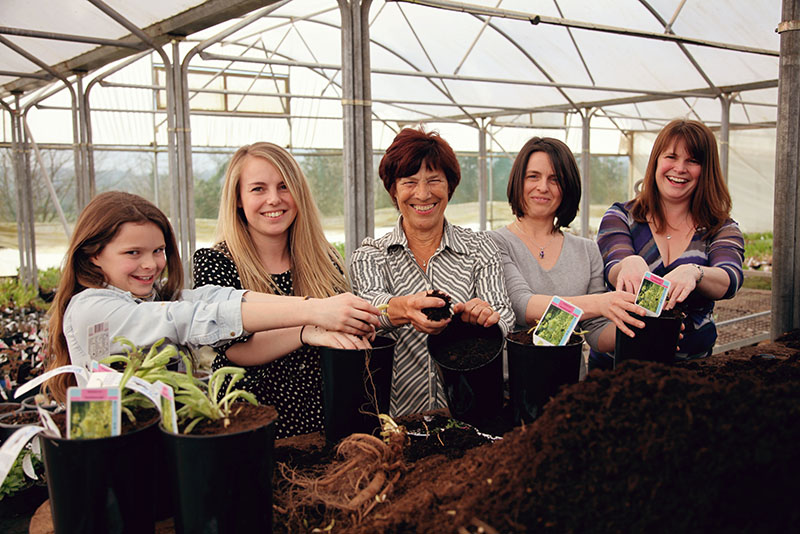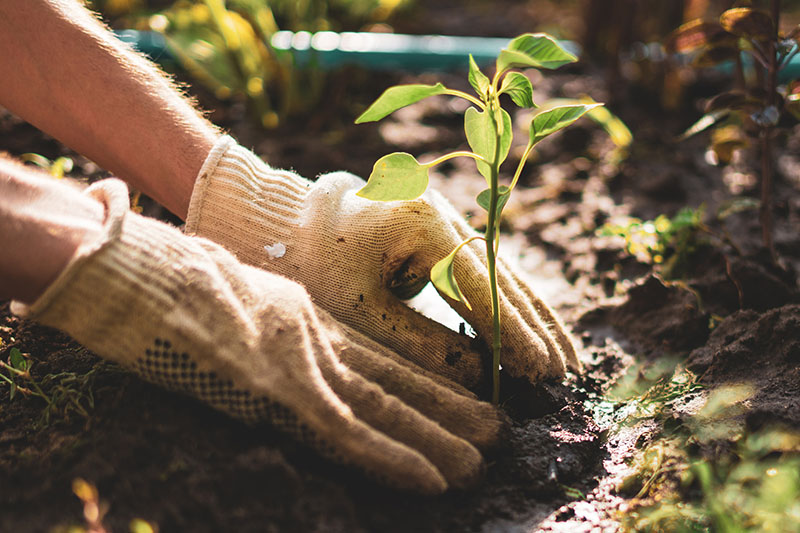Adapt and grow –
Lessons in business resilience: When times get tough, keep growing
Otter Garden Centres have been in business for nearly 60 years, but the pandemic tested their resilience to its limits.

Family business, Otter Garden Centres, have been operating for 57 years. After years of steady growth, they now run seven stores across the South West. The pandemic meant they had to adapt, and – quite literally – grow. Jacqui Taylor, Managing Director, talks about how the business has learned to overcome challenges.
The business we have today looks quite different from its founding in 1964.
Back then, my dad, Malcolm gave up his secure job in insurance to pursue his passion for farming. He bought some land and a second-hand tractor and began growing salad crops and lettuce.
Things progressed quickly, dad has green fingers and everything he plants flourishes.
He moved onto bedding plants and started taking them to markets; eventually, he began selling them from the gate in the field he was growing them in – the garden centre it eventually became just evolved and grew around us.
It was a big risk, but – of course – eclipsed by the enormity of the long-term task of growing the business into what it is now. The whole family was involved: my mum took on another job to help support the family and my sister and I helped by working on the land; we loved it. We ate so many strawberries growing up, it is amazing we had any left to sell.
Things picked up and over time the garden centre grew around us on that site.

Business resilience: Trust your staff
Something I learned early on was how adaptable you need to be. At one point, we were temporarily without an accounts assistant, so I would come home after school and do the books. I learned quickly and it felt good to be able to help my parents who were in a tight spot while they found a new accounts assistant.
The remarkable thing about a family business is that you are not just invested emotionally, but you are listened to, you can speak your mind, but also you get honest feedback about how you are doing. You feel valued.
Even to this day, it is working in a team that I love the most. When we started, we were a family, now we are a team. That is how you solve problems, together, with clear communication.
I have to say, I did try a career outside of the family business, but the culture was not right for me. I felt listened to by the family, like I could make a difference, it is important for team members to feel that way.
Growing a business
We have grown the business steadily. We had one garden centre, and another came up for sale in 1983. We thought, can we make this work? After some time consolidating, we were ready to expand again. It averages out at about one store every nine years or so. You can do it faster of course, but for us, that pace suited how we wanted to run the business. We have always been quite careful and prudent in how we run things.

Surviving through the Covid-19 pandemic
At the start of lockdown, it was horrible.
March is our busiest time in the year and – along with everyone else – we had to shut up shop. We have three growing nurseries, all of which were full of plants ready for the spring season.
Our first challenge was working out how we were going to sell anything to current and potential customers. We had no idea when we would reopen, and our business was not set up for online commerce.
Our Marketing and IT team took on that challenge though and set up an online store. It was not about making money, we just wanted to pay our teams’ wages and get these plants into customer’s gardens, we did not want them dying in the nurseries. We wanted to keep offering something to our many loyal customers. Our thinking was if, somehow, we break even and keep all the stores open, that will be a success for 2020.
We were lucky, not only did we have lorries that could be repurposed for home deliveries, but the team did an incredible job getting the online store running. It was slow at first, starting with special offers, and spring plants bundles. We selected plants and products that could be delivered or available through ‘click and collect’ from each of our garden centres - we wanted consistency across the sites.
When garden centres were allowed to reopen, it was a real shot in the arm for us. People had been spending all day at home looking at their gardens and making big plans - business really picked up. We extended our opening hours to 8pm at night just to allow more time for people to browse without having to be too close to one another. Our IT team helped out manning the tills; everyone pitched in.
The coffee shops were allowed to open again soon after, but with fewer available seats.
One of the lasting impacts of the pandemic has been how it has altered how you deploy your resources for maximum efficiency. If you are having to open for longer and you cannot get as many customers in, your overheads can increase while your ability to generate revenue falls. Your bottom line takes a hit, even though you work harder, and longer hours. You must be able to weather that. I think it will take us around a year and a half to recover from this financially. Despite these difficulties however, I do realise how lucky we have been throughout the pandemic to survive.
The importance of flexibility in business
The ‘family’ feel of the business really came into its own during the pandemic.
We had 45 team members working at the growing nurseries across three centres. They were classed as exempt workers. This included team members who usually worked in our coffee shop.
What was amazing to me was how adaptable people were. Normally used to feeding and watering customers, some of our coffee shop colleagues ended up on the end of a hosepipe keeping the plants going.
No one said “I don’t want to do that” - there was a real “can-do" attitude. I recall one night where we could not lock up the warehouse. A driver was still out – he didn’t want to let our customers down, so he was working overtime. I asked my colleague - a chef who was ‘seconded’ to warehouse duty, “why haven’t you gone home?” and he said: “One of our drivers is running late and I want to make sure he can make all the customer deliveries today, so I’m staying late to let him back in and lock up.”
For us, what was so incredible was the feeling that we were helping to keep our customers positive while they were stuck in their houses, we felt a sense of purpose in what we were doing. It was a privilege to be allowed to open and we never forgot that.
Business resilience: Adapting to change
Ours is a business built on being there in-person. You come to one of our centres to speak to an expert face-to-face about your needs, to actually see the plants and products. This is a form of retail not primed for ‘online.’ Anyone who has received a wilted, dying bunch of flowers will know that.
Despite this, we understood the need to broaden our client offering and we picked the right products to sell in the online shop. A resilient business can adapt to changing circumstances and we thought long and hard about what to offer online.
Over the years we have learned that every business needs a business continuity plan - it is all about risk management. We do not know – for example – what restrictions might be reintroduced later in the year, or in future years. We are already dealing with complications with supply chains, and these are likely to continue. You cannot foresee every specific challenge, but you can ensure robust financial modelling and you can hire a flexible and motivated workforce who will help you solve problems.
When times are hard, you can also look at business processes, tasks you put off when you are busy with customers. During the lockdown, we spent a lot of time improving the nurseries, the irrigation systems, hard standings and general maintenance. The work we did last year is helping us grow, quite literally, this year.
Own a business? Find out how we support our clients.
Brochures & email subscriptions
Request a brochure, or subscribe to our email updates.

Becoming a client
Take control of your finances today by completing our enquiry form. Alternatively, you can call us on the number below and one of our team will be more than happy to talk about your future.